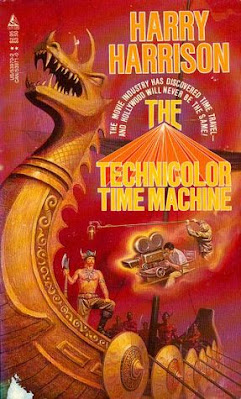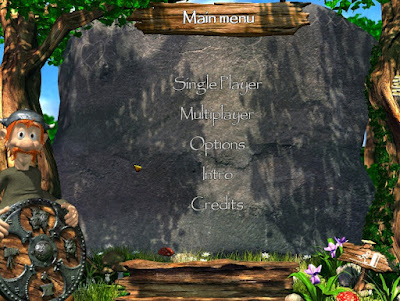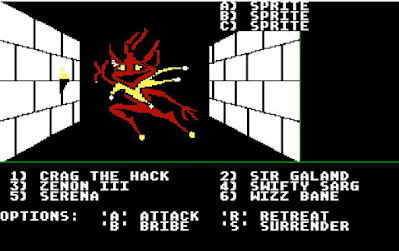Do you like stories about time travel? Who doesn't, am I right? Without sounding superfluous, I would like to say it's one of those genres of literature that must be simultaneously the easiest and the toughest to write about. On the one hand time travel could be anything you want it to be, since we have no reality to compare it to. On the other hand it's so easy to write yourself into mind-bending paradoxes that make the reader just think you're being silly now. If you're trying to do it seriously it must be an impossibility to keep every timeline clean from scrutiny. I am sure even the most serious creator gives up at some point and realizes that some things are just not going to be explainable.
If you want to read something very educating and interesting about "real" time travel, as we understand it today, I can really recommend Kip Thorne's "Black Holes and Time Warps". Kip Thorne was also scientific consultant on the movie Interstellar, which shows how some of the theoretical ideas from the book could work.
 |
| A cover that captures the essence. |
H.G Well The Time Machine is interesting from a history of literature (or history of sci-fi) point of view, but it's not very entertaining to read. Because good time travel stories seem few and far between in literature, I was very happy to come across Harry Harrison's "The Technicolor Time Machine" from 1967. It's one of those deliciously funny stories that takes the time travel story and runs with it to its furthest reaches.
- Ottar has signed the contract. I was very surprised to find an Icelandish notarius publicus here...
- You can find anything in Hollywood.
The concept of the book is as funny as it is silly. Time is money. So if you're a movie company and have no money but a time machine, couldn't you save a lot of money by simply time traveling? Let's just say, it's not going to be that easy.
The main character, director Barney Hendrickson, works for a movie company that is just about to go bust. It has about as much money needed to make one last movie, but no time to make it before the banks come and take it all away. Because of reasons, Barney happens to know a professor who has invented a working time machine. Barney decides to use it to jump back to the time of the Vikings (around year 1000) to shoot a movie about the Vikings "discovering" the Americas, which they called Vinland. The idea is based on the very real theory that Vikings briefly settled on the Canadian coast, way before Columbus ever set foot there.
- There is a hostile guard. You need to sneak up there and kill him just like if this was for real.
- But why?
- Why? What kind of question is that, Ottar...?
The time traveling works fine, but it turns out that the practicalities of shooting a movie aren't removed because you suddenly have all the time in the world. Barney has to make the most out of the fact that the time machine can allow you to spend any amount of time in history and still only use one second of time in the "now". In the "present" Barney only has a weekend to finish the whole movie so he constantly needs to make sure no one spends any time there. He sends off the script writer to Trilobite-time to finish the script. He has to send off the lead actor to a different time because of an injury. They forget one of the actors in-between jumps (one second in present time, a year in Viking-time) which has life-altering implications for her. They leave the old-norse language historian in Viking time for months so that he can teach the lead Viking actor to speak English.
That's not even to mention the ordeals of getting the native time-inhabitants to cooperate with a project they don't understand on any level. Nor the fact that they have to deal with hostile forces that literally want to kill them. Barney takes it all in stride and makes the most out of it. When he fails to get the native Indians to "act" in the movie he decides to use the very real attack on the settlement in the movie instead.
- I didn't want to bother you while you were eating, she said.
- Why not? After what I just ate my digestion will never be the same. Do you know what a Trilobite is?
The end result is nothing but a romp, in the best of ways. It gets to the right kind of confusing and hilarious, like a slice of something out of Hitchhiker's Guide to the Galaxy. It always feels like a miracle that Barney can keep track of where everyone is on the timeline and most importantly how much pay they are due (an ever constant argument with the company owner, who keeps arguing that only mere hours have passed in the present and everyone should get paid accordingly).
 |
| The Swedish version called "Barney the Time Traveler Saga". I don't think the cover artist has read the book. |
Because it is a book about time travel it wouldn't be a proper ending without a twist, one that I foresaw pretty early on but which was nonetheless clever and thought-provoking.
The Technicolor Time Machine is the kind of book that is created when someone has an interesting idea over a cup of coffee somewhere and they go "what would happen if...". Harrison brings it all together marvelously. It has some flaws, there are some not so well aged, "to be expected of the time"- caricatures (anyone who isn't a white male is horribly stereotype, I tried to read it as a parody), and my Swedish copy (from 1982) is a pretty bad translation. But it doesn't remove from the fact that the overall concept and execution works to entertain.
This was my first book by Harry Harrison and I am eager to find more. I am actually surprised this hasn't been turned into an actual movie, because the book reads like one, and I think it would be brilliant in the right hands.






